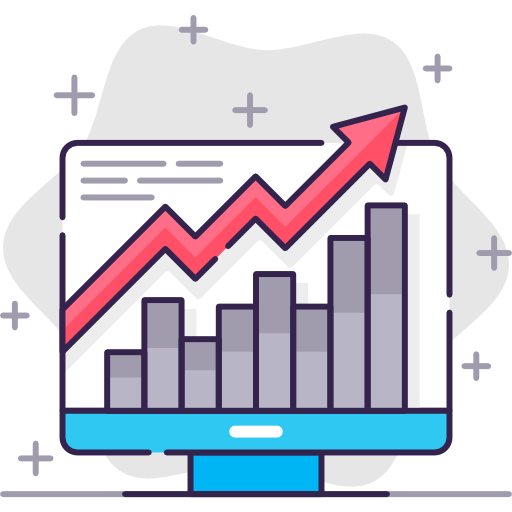You’re running a business or overseeing marketing strategies, juggling countless tasks while trying to keep up with the latest digital trends.
One thing keeps popping up in every marketing conversation—Artificial Intelligence (AI).
Specifically, how it’s transforming Search Engine Optimization (SEO).
Maybe you’ve heard that AI is going to change the game, but you’re wondering, “How can it actually impact my business? Is this just hype, or should I be paying attention?”
Here’s the thing: AI in SEO isn’t just hype.
It’s a seismic shift in how we approach digital marketing. Whether you’re a business owner or a fractional marketing leader, understanding the role of AI in SEO can unlock massive opportunities—if you know how to leverage it.
AI in SEO refers to the use of artificial intelligence tools and algorithms to enhance and automate various aspects of search engine optimization. From keyword research and content creation to rank tracking and competitor analysis, AI is changing the way businesses optimize their websites for search engines.
. Data-Driven Insights:
AI algorithms can analyze massive amounts of data at a speed and depth that humans simply can’t match. By leveraging AI-powered tools, we can uncover trends, patterns, and insights that inform a more precise SEO strategy. From keyword research to competitor analysis, AI provides the data-backed foundation for decision-making.
2. Content Optimization at Scale:
Creating content that ranks well in search engines is one of the biggest challenges in SEO. AI tools can assist in analyzing content performance, identifying gaps, and even suggesting optimizations to align content with what users and search engines are looking for. While human creativity remains essential, AI helps scale this process more efficiently.
3. Predictive SEO:
One of the most exciting aspects of AI is its ability to predict future trends. Using AI-driven tools, we can anticipate changes in search behavior, keyword demand, and even potential algorithm updates. This allows us to be proactive, not just reactive, in shaping SEO strategies.
4. Automation of Repetitive Tasks:
Certain SEO tasks are time-consuming, such as monitoring rankings, tracking website performance, and analyzing backlinks. AI can automate these repetitive processes, freeing up more time for strategic, high-level decision-making. However, the human touch is still crucial in interpreting this data and guiding the overall SEO strategy.
Automating Keyword Research
AI tools can quickly analyze search trends, user intent, and competition to give you a list of high-potential keywords. You no longer need to manually sift through data; AI does the heavy lifting for you.
Content Ideation & Generation
AI tools can quickly analyze search trends, user intent, and competition to give you a list of high-potential keywords. You no longer need to manually sift through data; AI does the heavy lifting for you.
Predictive SEO
One of the most exciting aspects of AI is its ability to predict future trends. Using AI-driven tools, we can anticipate changes in search behavior, keyword demand, and even potential algorithm updates. This allows us to be proactive, not just reactive, in shaping SEO strategies.
Data-Driven Insights
AI algorithms can analyze massive amounts of data at a speed and depth that humans simply can’t match. By leveraging AI-powered tools, we can uncover trends, patterns, and insights. From keyword research to competitor analysis, AI provides data-backed decision-making.

Industry and Audience
Industry-Specific Strategies
Different industries have different challenges and opportunities when it comes to SEO.
Whether you’re in healthcare, technology, retail, or any other sector, we customize our SEO strategies to address your specific industry dynamics – we focus on what matters most in your field, leveraging our expertise to navigate the unique landscape of your market.
Target Audience Alignment
At the heart of successful SEO is understanding who you’re trying to reach. It’s imperative to target the right audience—those who are genuinely interested in what you have to offer.
When SEO strategy is aligned with the behaviors, needs, and search intents of your target audience, inbound traffic is more likely to convert into loyal customers.

Location Matters. Very Much.
SEO isn’t one-size-fits-all when it comes to geography. Your business might be local, regional, national, or even international—and your SEO strategy needs to reflect that!
Local SEO
Local SEO is all about making sure you’re visible where it matters most—right in your own backyard! We optimize your site for local search terms, make sure your Google My Business profile is top-notch, and build local citations that drive a higher volume of quality traffic from people nearby who are ready to do business with you!
Regional & National SEO
For businesses that operate across multiple regions or the entire country, we scale our efforts to make sure you’re capturing attention on a broader level. We tailor our strategies to national and target regional keywords and create content that resonates with a wider audience, ensuring your brand is recognized.
International SEO
Are you looking to expand globally? We’re here to help you navigate the intricacies and complexities of international SEO. From optimizing for different languages to understanding cultural nuances and adapting to international search engines, we ensure your brand can compete and thrive on the global stage.

Continuous Improvement
SEO is not a set-it-and-forget-it kind of deal. It’s an ongoing process that requires constant attention and adjustment to keep up with ever-changing algorithms and market dynamics.
Continuous Monitoring
We don’t just set up your SEO and walk away. We continuously monitor marketing & sales performance metrics, analyze data, and make necessary adjustments to make sure that your strategy stays effective. SEO is dynamic: we’re always on top of it, refining and optimizing to keep your site at the top of the search rankings.
Algorithm Changes
Search engine algorithms are continually evolving, and staying ahead of these changes is crucial – search engines don’t tell us what they’re changing We keep a very close eye on search engine algorithm updates and adjust and optimize your SEO strategy to ensure you’re not just keeping up but staying ahead.
Content & Link Building
Content needs to be consistently updated and optimized to maintain its effectiveness. We make sure that your content remains fresh, relevant, and optimized for the right keywords – we use it to continuously build high-quality backlinks that strengthen your site’s authority and improve its ranking potential.

FAQs
C.O.R.E. SEO stands for Custom, Optimized, Robust, and Ethical SEO strategies. It’s our foundational SEO service designed to meet the unique needs of your business. We tailor our approach to align with your specific goals, optimize every aspect of your SEO strategy, ensure robust performance that adapts to changes, and always adhere to ethical practices that prioritize long-term success.
C.O.R.E. SEO is different because it’s not a one-size-fits-all solution. We start by customizing our strategies to fit your business’s unique needs. We then optimize every element for maximum impact, build robust strategies that are built to last, and ensure everything we do is ethical and sustainable. This comprehensive approach ensures that you get tailored, high-quality SEO that drives real results.
C.O.R.E. SEO includes a full suite of services such as keyword research, on-page optimization, technical SEO, content optimization, link building, and continuous performance monitoring. We also focus on geographic targeting, whether your business needs local, regional, national, or international SEO. Each of these services is customized and optimized to ensure the best possible outcomes.
SEO is a long-term investment, and results with C.O.R.E. SEO typically start to appear within 3 to 6 months, with more significant improvements often taking 6 to 12 months. This timeline allows us to implement and refine strategies, ensuring sustainable growth and long-term success. We continuously monitor and adjust your SEO to keep your site performing at its best.
Yes! C.O.R.E. SEO is designed to be flexible and adaptable to businesses of all sizes and industries. Whether you’re a local business looking to attract more customers, a national brand aiming to dominate your market, or a global company expanding your reach, our C.O.R.E. SEO strategies are tailored to help you achieve your goals.



